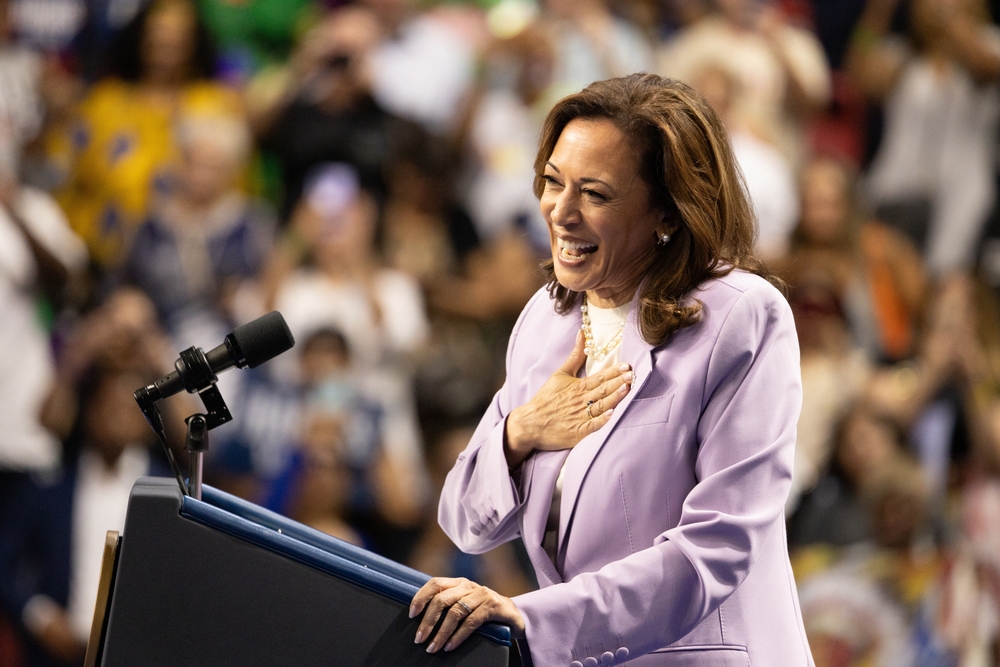Vice President Kamala Harris has initiated a major advertising campaign focused on health care. The seven-figure ad blitz aims to counter former President Donald Trump’s efforts to replace the Affordable Care Act (ACA) with an unspecified alternative plan.
The campaign first reported by NBC News seeks to elevate health care as a key issue in the presidential race. It leverages polling data indicating this is a vulnerability for Trump.
A 60-second advertisement features Trump during his debate with Harris where he claims to have “concepts of a plan” to overhaul the U.S. health care system. Harris responds asserting Trump has no plan while promoting her commitment to protecting the ACA and extending Biden-Harris administration policies that expanded health coverage subsidies and capped insulin costs for seniors at $35 per month.
Harris’s team argues Trump’s agenda threatens an estimated 50 million individuals covered under the ACA. They contend eliminating the ACA would rescind vital subsidies dismantle Obamacare plan marketplaces and remove protections preventing insurers from charging higher rates to those with pre-existing conditions.
The ad titled “Concepts of a Plan” will air in battleground states during popular shows like 9-1-1 Brilliant Minds Chicago Fire and Grey’s Anatomy as well as on networks like Hallmark Channel and TLC. The campaign targets diverse audiences during health-related programming.
A recent Gallup Poll shows health care remains a top concern for voters with two-thirds of U.S. adults believing it has not received adequate attention in the presidential campaign. Independents crucial swing voters are more likely to trust Harris over Trump on improving health care access and lowering costs.
Harris’s campaign communications director Michael Tyler emphasized the vice president’s focus on fighting for Americans’ health care needs particularly seniors and those with pre-existing conditions. He stated “Being president is about who you fight for” highlighting the contrast between Harris’s commitment to health care access and Trump’s perceived self-interest.
While Trump has consistently criticized the ACA he recently softened his rhetoric suggesting he would only seek repeal if he could propose a better cheaper alternative. However specifics about this plan remain vague and the Trump campaign has not provided a timeline for its release. They’ve outlined broad goals including eliminating health care system waste and ensuring quality medicines at competitive prices.
Trump’s past attempts to repeal the ACA have faced significant backlash particularly after a 2017 repeal-and-replace proposal projected to leave millions without coverage. Despite these challenges Trump continues advocating for a health care strategy emphasizing patient choice and market efficiency.
As the election approaches health care remains a critical issue that could sway voters. Harris’s campaign aims to solidify her position as a trustworthy advocate for health care reform. With polls indicating voters prefer Harris over Trump on health care issues upcoming debates and campaign efforts will be pivotal in shaping public perception and voter turnout.
The ad campaign highlights the increasing importance of health care as a campaign issue. It reflects a strategy to appeal to voters concerned about losing coverage or facing higher costs under potential ACA changes.
Harris’s focus on protecting and expanding the ACA aligns with broader Democratic efforts to position themselves as defenders of accessible health care. This approach seeks to capitalize on the ACA’s growing popularity since its implementation.
The campaign also underscores the ongoing debate about the role of government in health care. While Harris advocates for maintaining and expanding federal programs Trump’s approach leans towards market-driven solutions.
As both candidates refine their health care messaging the impact on key voter demographics particularly older Americans and those with pre-existing conditions will be closely watched.
The health care debate extends beyond coverage to include issues like prescription drug prices mental health care and the ongoing opioid crisis. How each candidate addresses these interconnected issues could further influence voter perceptions.
(Word count: 699)




